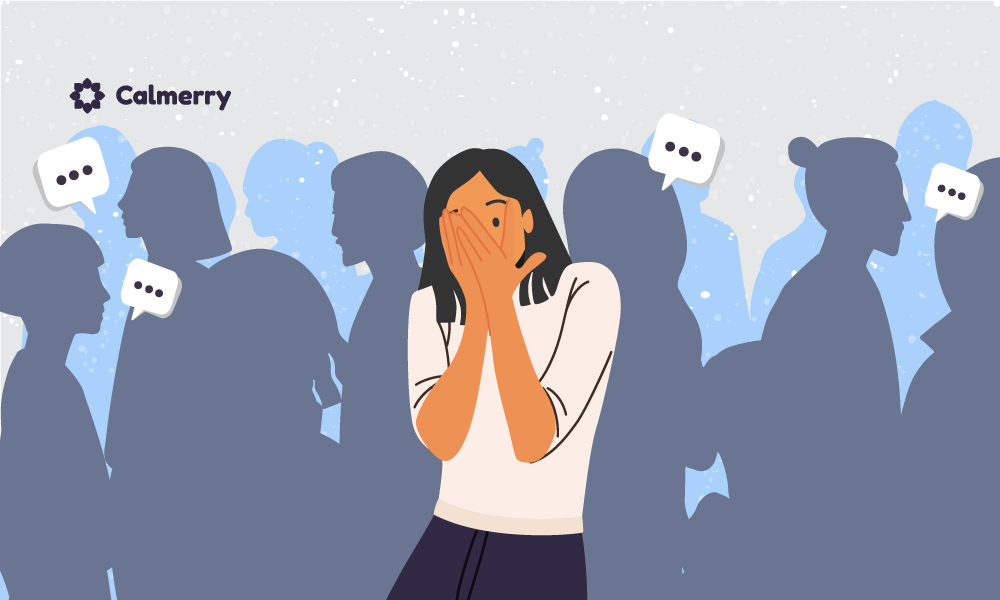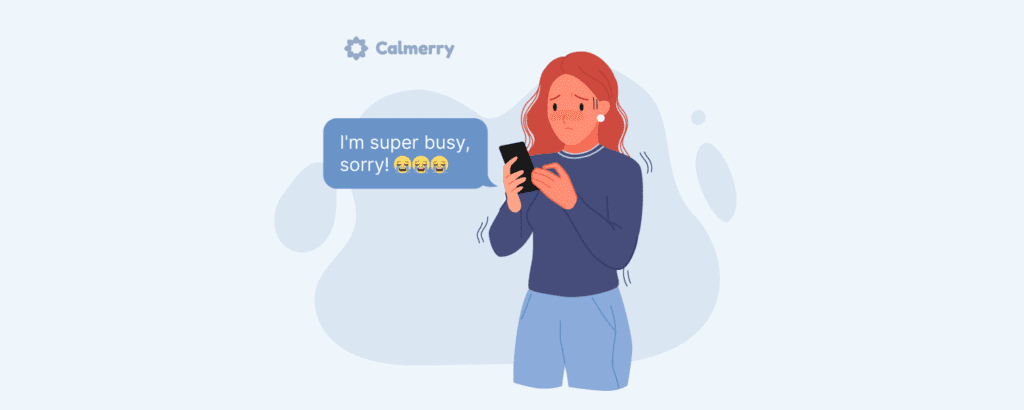At the Mercy of Likes: How Social Media Fuels Social Anxiety
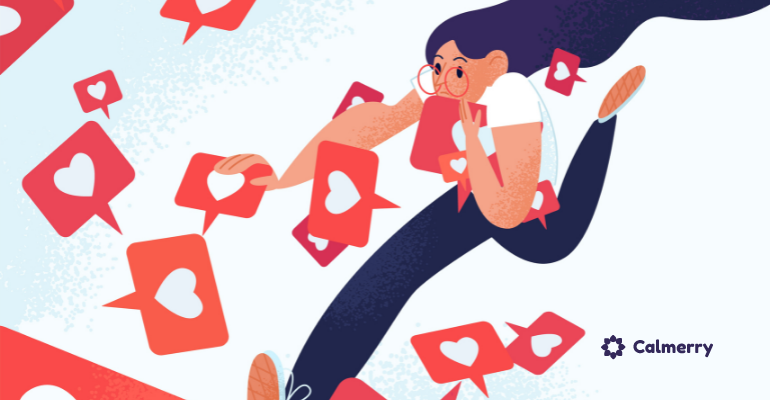
In this article
Over 3.7 billion people now use social media. Instagram, YouTube, Facebook, Twitter, LinkedIn, TikTok, and WhatsApp are present in almost all facets of our lives. On these platforms, we get in touch with our old friends and forge new connections, run businesses, self-educate, buy birthday presents for moms, job hunt, meet the loves of our lives, collect precious moments, become influencers, and self-express.
One thing is also true — social media impacts our mental health and well-being. In both positive and negative ways. For example, did you know that social media can fuel social anxiety?
Social media is a double-edged sword. On the one hand, it can provide us with the confidence and support we so desperately need. On the other hand, it can catalyze our worst fears — and worsen our symptoms of social anxiety. Many individuals are seeking anxiety therapy online as a way to cope with these feelings.
Since Spring 2021, Instagram users have been able to hide the number of likes they receive in order to reduce social media pressure. Still, there are over 330m posts tagged with #likeforlikes and millions with other like-inducing hashtags.
Why do we do that?
And, most importantly, how do we feel about getting or not getting more likes?
Let’s explore more links between social media and social 3.7 billion people and find out how to reduce the negative social media effects.
First, what is social anxiety?
Social anxiety is more than just shyness or insecurity — it’s a mental health disorder that affects a person’s daily activities, relationships, work, and self-image and prevents them from leading a fulfilling life. Over 15 million people in the United States have social anxiety disorder (SAD).
The main symptom of social anxiety is excessive fear and worries before, during, and after social situations. For the person with SAD, almost any social situation, even active social media use, can cause overwhelming feelings.
Here are some other psychological and behavioral symptoms and signs of social anxiety to note:
- Feelings of inadequacy
- Self-consciousness
- Social withdrawal
- Self-esteem issues and a warped self-image
- Avoiding social situations
- Trying hard to look or behave perfectly
- Fear of making or saying something embarrassing or humiliating
- Fear of looking funny or amusing
- Fear of making mistakes and appearing incompetent
- Difficulty doing things while others are watching
- Feelings of being judged or criticized all the time
- Inability to relax, have fun, and enjoy events/activities
- Self-blame and self-shame
Is social media a blessing for people with social anxiety disorder?
So, why do people who have high SA rely more on online than offline communication?
There’s a hypothesis that the online world is less threatening and safer for initiating and establishing connections. For example, people can experience overwhelming feelings and cognitive-behavioral responses when faced with real-life social situations.
On the web, they can control, regulate, or avoid them entirely:
- They can hide their physical signs of anxiety (e.g., sweating, trembling, blushing) and not worry that someone will notice them
- They can manage the frequency and duration of communication, take time for answers, decide when and how to respond, edit or delete messages, etc.
- They gain more confidence and inner resources to leave conversations and choose with whom to interact
- They can prepare before a real-life meeting with a person.
The online world makes it possible to practice social skills and build deeper relationships. People with SA can feel more at ease and free of cognitive-behavioral complex processes.
Also, websites and apps provide powerful community support. They may play a protective role, bringing unique benefits to mental health, like a sense of social connectedness and positive quality interactions to those who can’t access these resources offline. For instance, Calmerry has accounts on Instagram and Facebook. There, we share expert content on social anxiety and other mental health-related topics, raising awareness and providing support for everyone, thereby uniting communities.
In addition, social media is an outlet for safe self-expression. People can create an anonymous and private space to express their feelings, thoughts, creative ideas, get answers, share memes, and just reveal their best inner selves.
All this can minimize isolation and decrease symptoms of anxiety and depression.
However, despite the considerable benefits that social media brings to its users, there are some risks to mental health that can fuel social anxiety. Let’s explore how.
Why is social media bad for the mental health of people with social anxiety?
Do you always post your “best angle,” spend a lot of time retouching a photo, or prefer to completely hide your face?
Do you feel dread when reading your 3-year-old posts? — “I would never post that” or “Gosh, that sounds silly. I’d better delete it.”
Do you feel anxious while scrolling your feed and think that everyone does better than you?
Do you prefer not to post anything at all? — “I don’t feel like I can say anything that will be understood right.”
We’ve all been there…
Social media can add fuel to the fire that already exists. It can really become a breeding ground for or worsen symptoms of social anxiety. It’s sometimes a prime place for people to feel inadequate and self-conscious about themselves, to experience their deepest fears of embarrassment and being judged, and to face negative impacts on their self-esteem and self-image.
Here are the reasons why social media is bad for the mental health of people with social anxiety.
More anxiety, stress, and depression
Users with SAD engage on social media more frequently and passively than non-socially anxious people. They prefer feed scrolling over posting.
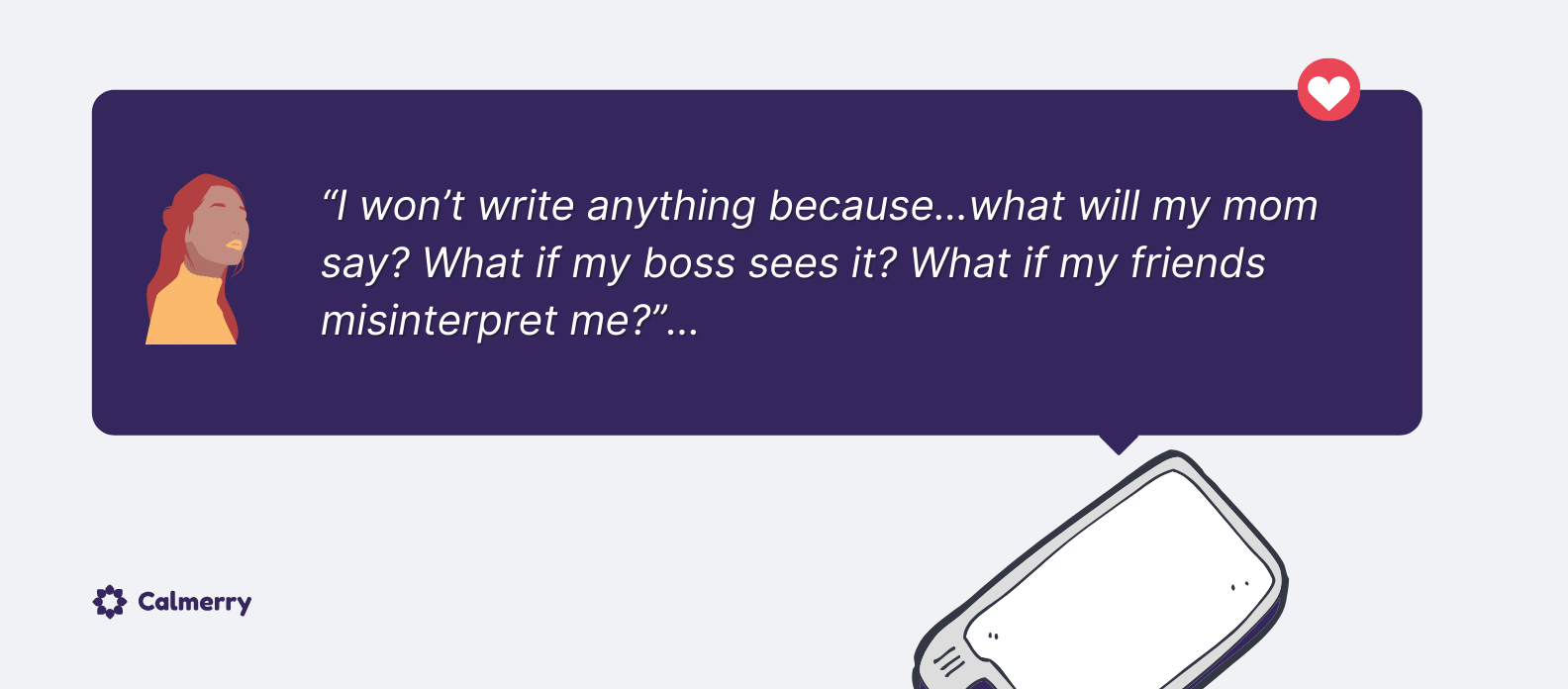
This online silence can be accompanied by anxious rumination, brooding, the desire to get into interaction, and overwhelming fears that result in deleting newly written lines for a potential post or comment. This creates more space for worries.
A 2014 study found that, for people with high SA, online communication was easier than face-to-face but brought more social media anxiety compared to passive scrolling. It triggered the same complex cognitive and behavioral processes as face-to-face interactions in people with high SA. It reinforced the existing unhelpful beliefs that others are critical, judging, or rejecting; led to an increase in safety behaviors; and drove more negative thoughts and interpretations.
For everyone, social media creates a feeling that anything we do, anywhere we go, there is potential for criticism, rejection, judgment, and meeting internet trolls. Thus, instead of letting us embrace positive moments, social media causes anxiety, stress, and depression symptoms, creating a vicious cycle.
Dependence on likes as the currency of validation
A “like” on Facebook or an Instagram “follow” can seem like they’re little more than the click of a button. They are the equivalent of a pat on the back:
- It’s been established that they are things that make us feel great about ourselves.
- They reassure us that we’re doing well and that the world agrees with that.
- They’re proof that we’re relevant, that we know what we’re talking about, what we’re doing, where we’re going, and that people value us.
Social media has supercharged our need for validation and approval from others. And the “like” button has essentially become the ultimate form of validation. Getting likes stimulates our reward system and releases dopamine — a feel-good hormone.
People of all genders report being anxious about how many likes they get on social media. They post a photo or status update and wonder if it gets enough “likes” to make them feel validated — or whether it will fail to reach their “like” quota for the day. This is especially common among teens, young adults, and people with high social anxiety levels.
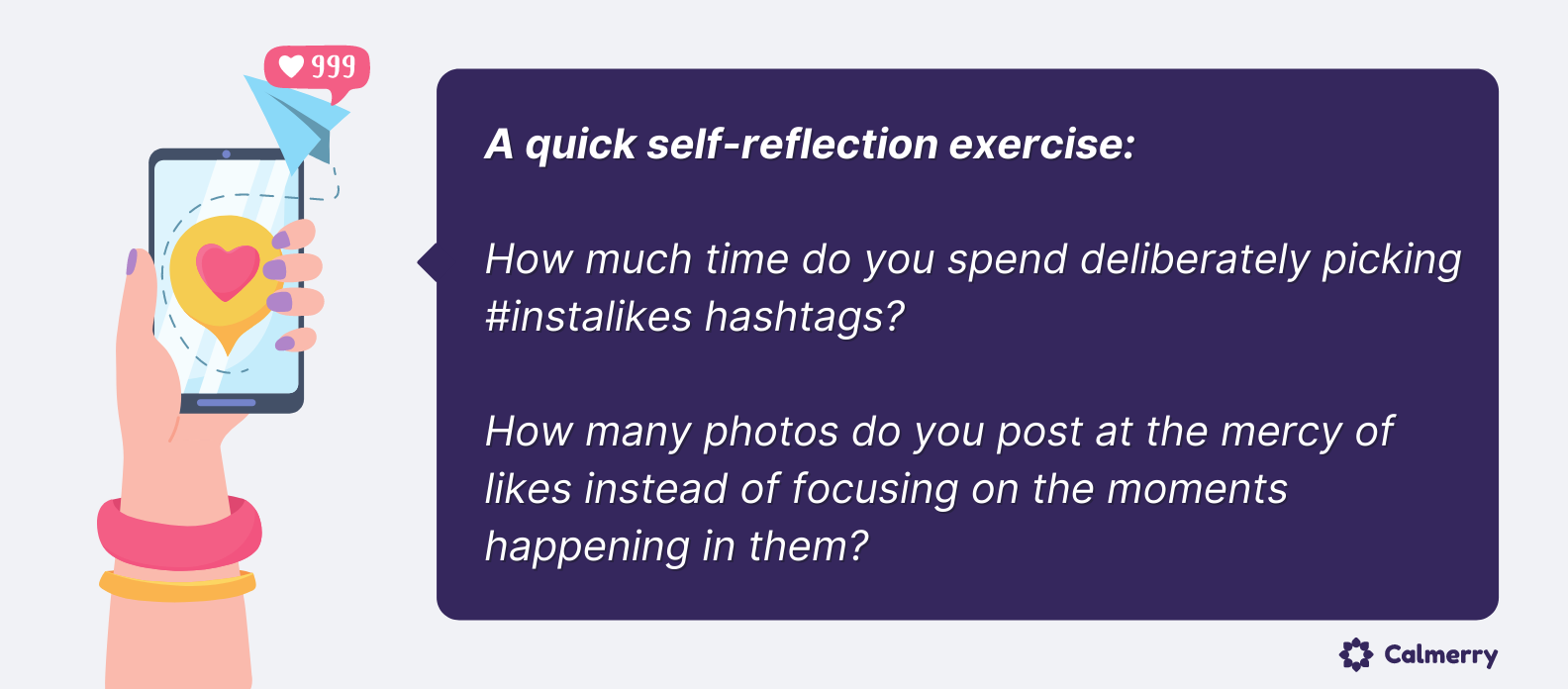
Many people with SAD use social media to get support, acceptance, and a kind of therapeutic effect. Many of them report an increase in self-esteem after receiving positive feedback. But there’s another side to the coin: getting a dislike, negative comments, or not getting as many likes/followers as they expected can leave them feeling worse than they did before logging on.
These constant shifts between social praise and feelings of inadequacy increase anxiety levels and impact people’s emotions, self-esteem, and self-worth.
Self-esteem issues and FOMO
Fear of missing out (FOMO) is a well-known negative social media effect. Do you constantly compare your feed to other people’s? Do you make unpromising conclusions that your life is worse than the lives of your colleagues based on Instagram photos? You’re not alone. That’s where social comparison sets in.
Social media relies on social comparison. It can be very unpleasant and sometimes even paralyzing — opening Instagram and seeing pictures of how everyone is having fun, vacations, trips, engagements, family outings, cool new clothes, success stories, and just #instagood mood while we may be in our normal or not our best. It makes us feel envious, jealous, angry, and left out. It seems like we don’t measure up. It seems like something is constantly wrong with us and great with others.
Even if we’re on a smooth path in our lives, this social media pressure can make us anxious and damage our self-esteem.
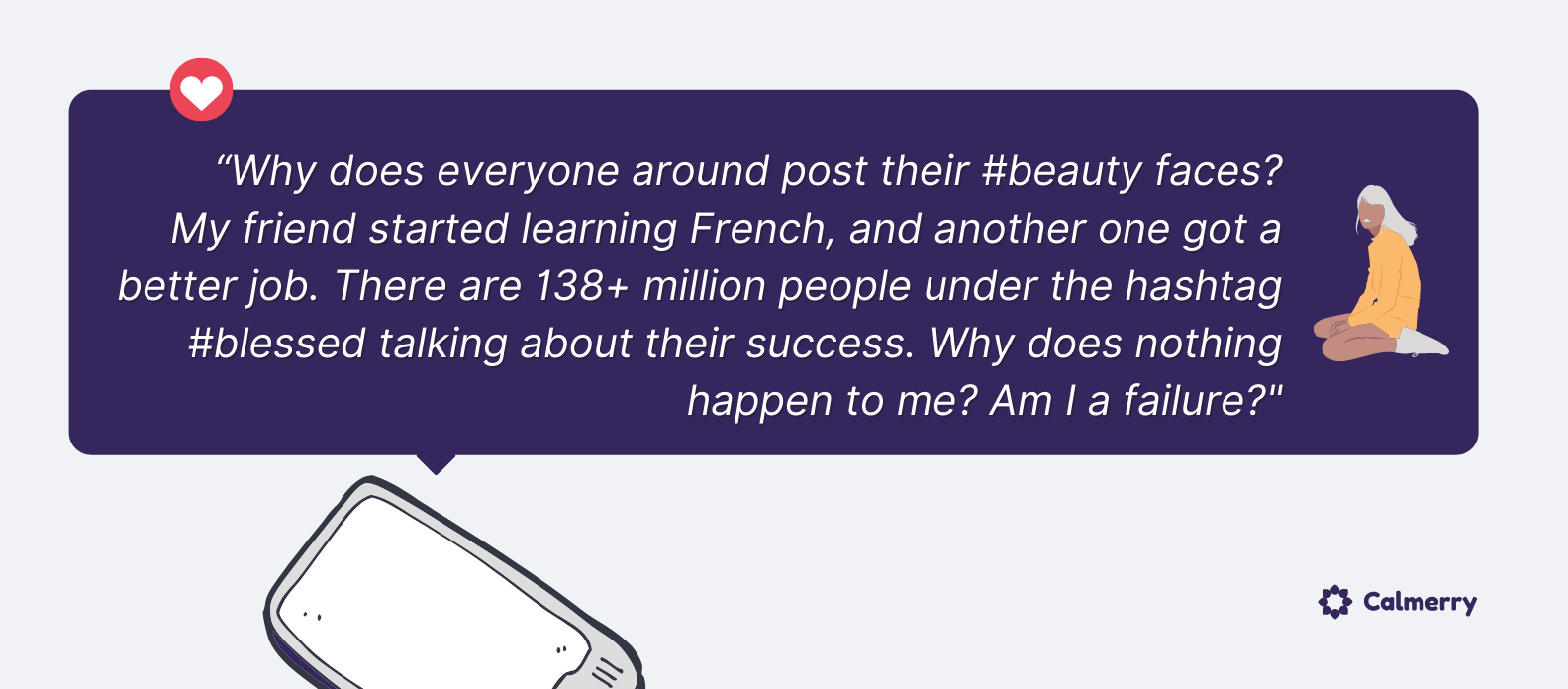
When we see that people produce photos of perfect lives, we assume that’s the standard for everyone. We hit “likes” on such content and do our best to produce the same thing to get positive reactions that we hope will lead to our sense of fulfillment and joy.
This addictive game makes us consistently post happiness and success for the world to see, even though we may feel down on the inside. The quest for perfection creates a dangerous feedback loop. Rather than promoting living an authentic life, social media often forces us to hide, suppress our emotions and feelings, and think that it’s not OK to be just OK.
Photo filters and other editing tricks that make our lives look better make us feel insecure about our body image and self-worth. Thus, the way we view ourselves online can drastically change our sense of self and our self-image in real life. We start being hard on ourselves, sinking into more rumination, self-blame, and isolation.
Social isolation and loneliness
Facebook, Twitter, and Instagram contribute to social isolation — a feeling that can stem from feeling alone or left out, social comparisons, and fears of being judged and rejected. As a result of these feelings, people can become less satisfied with their own lives and withdraw from others.
Social media may provide the illusion of intimacy and connectedness. But for people with high SA levels, scrolling through Instagram can induce loneliness. We feel lonely because we are surrounded by too many people who are emotionally unavailable to us. And our fears and some negative experiences that reaffirm unhelpful beliefs don’t let us get closer to them.
How to spot social anxiety in your Facebook friend by their account
Of course, this is not an ultimate guide because the ways in which we build our social media presence and the factors that influence it are unique. But several studies, including Social Networking Sites, Depression, and Anxiety: A Systematic Review, provide some insights into how social anxiety translates into social media use.
So, here’s a summary of key findings:
- Social anxiety is connected to an increased tendency to communicate online. It has emerged as a coping and compensation strategy for people to take part in social integration
- People with SA are attracted to social media by the ability to control communication, maintain privacy and anonymity, and reduce social context cues;
- They choose private messaging over online public communication
- They are more passive users (preferring just to scroll the feed and browse) than active (opting to create content and publish)
- They start discussions, share opinions, show assertiveness, and publicly interact with others on platforms less often
- They are very self-focused during online conversations. They monitor their performance and can’t focus on the process of interaction
- They may engage in a range of self-protective strategies or safety behaviors to prevent feared outcomes (e.g., constantly checking how they look in a Zoom meeting so missing important information from others, overthinking how to sign their FB stories)
- For sharing and self-expression, they turn to microblogging platforms like Tumblr, Reddit, and Plurk. Or, they use any website where self-disclosing to real-life acquaintances and friends is impossible
- They have an increased risk of developing problematic social media use and addiction.
How to deal with the overwhelming pressure of social media and enjoy it
If social media can have such a detrimental effect, should we stop using it altogether?
No, and, most likely, that wouldn’t be reasonable for many people. The October outages of top platforms showed us that living without them for several hours is possible but quite tough. And it may further escalate anxiety levels.
Actually, social media can provide us with tremendous benefits. And there are some ways to start getting them by using social media, not at the mercy of likes, but to your own benefit.
Set boundaries and limits
You can design your social media around your life rather than the other way around. Instead of letting social media dictate how you spend your time, you can schedule, manage, and use it as a tool to help you get the most out of life.
It may help to:
Turn off notifications to make it easier to resist the distracting beeps or vibrations;
- Set a schedule to check the platforms less often;
- Unplug from the internet for a while on weekends;
- Take days off social media;
- Be mindful of the moments when you’re in urgent need of seeing what’s happening right now;
- When someone says something negative about you online, take a breath and reflect before reacting;
- Practice journaling to track your feelings, emotions, moods, and thoughts about your platform use.
Know that what you see isn’t always the whole story
What appears on social media is not always what’s happening in reality. People create these best moments on social media using masks to hide their insecurities or flaws. But there’s more to life than what you see on social media — it’s hard to capture it in a single click. Chances are you’re not really seeing people as they actually are.
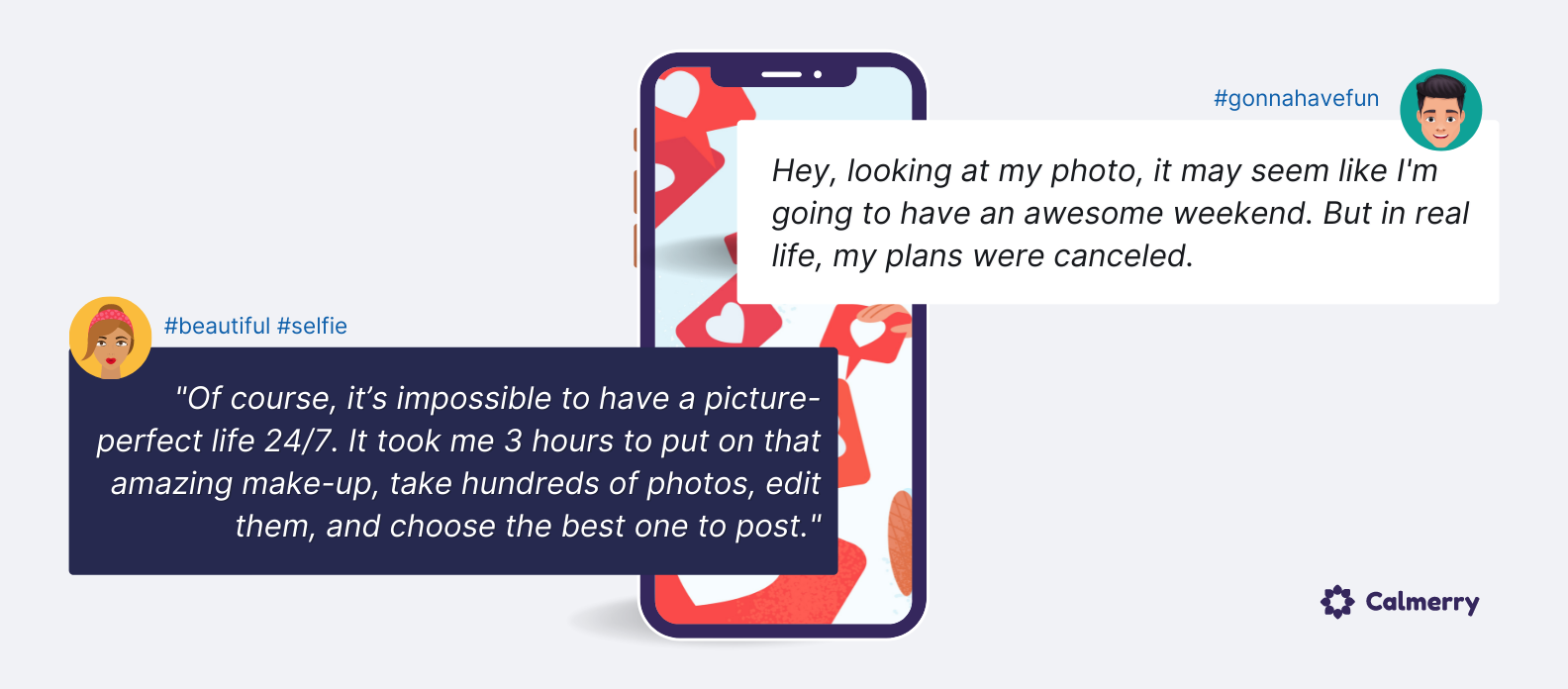
It takes a lot of courage but…post it!
Passive scrolling is okay, but if it makes you feel bad, try to engage in active social media use:
- Try to relax. Stop overthinking, overly focusing on, or monitoring your own posts. You can’t control people’s reactions. Half of the world is using Facebook, Instagram, and Twitter. It’s impossible to please everyone
- Share and interact with others more. When we share more of ourselves, we get to know others better and feel more confident
- Practice writing something spontaneous. Try to “turn off” your excessive censoring
- Remember that you have something to say, you’re interesting, and your opinion does matter!
We know it takes courage to be yourself in the digital world. But the truth is that you are who you are, and that is beautiful. Only a few people can live up to their Instagram personas.
Enjoy useful and supportive content
Social media can be an incredible source of support, education, fun, connection, art, and community. You can safeguard your mental health with additional support from others.
Here are some healthy Instagram hubs for people with social anxiety disorder:
- @socialanxiety
- @sociallystrong
- @social_anxiety_decoded
- @anxietycoachleigha
- @calmerry_com — feel free to comment on our posts and engage with our community. We really appreciate and value your thoughts! 💙
Talk to a licensed therapist
We all need to take care of ourselves, especially in the digital age. And you do have the power to create a better experience for yourself on social media. But sometimes, you may need more support and need to talk to a licensed therapist.
Get professional help and start individual therapy on Calmerry if you want to:
- Learn how to cope with excessive worries
- Gain healthy coping skills and strategies
- Talk with someone in a safe, non-judgmental environment
- Ease the pressure from your inner self-critic
- Cope with web addiction and learn healthy social media use habits
- Stop constantly trying to make the right choices to please others
- Acknowledge and validate your feelings and emotions
- Minimize the negative impact of social anxiety on your life
- Embrace your authenticity
- Deal with stress, anxiety, and depression
- Get a fresh perspective on your self-image, strengths, and self-worth.
It’s time to rediscover yourself, break free of your fears, and have an enjoyable experience with social media!
online therapy
live video session

